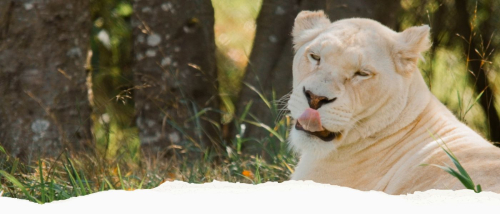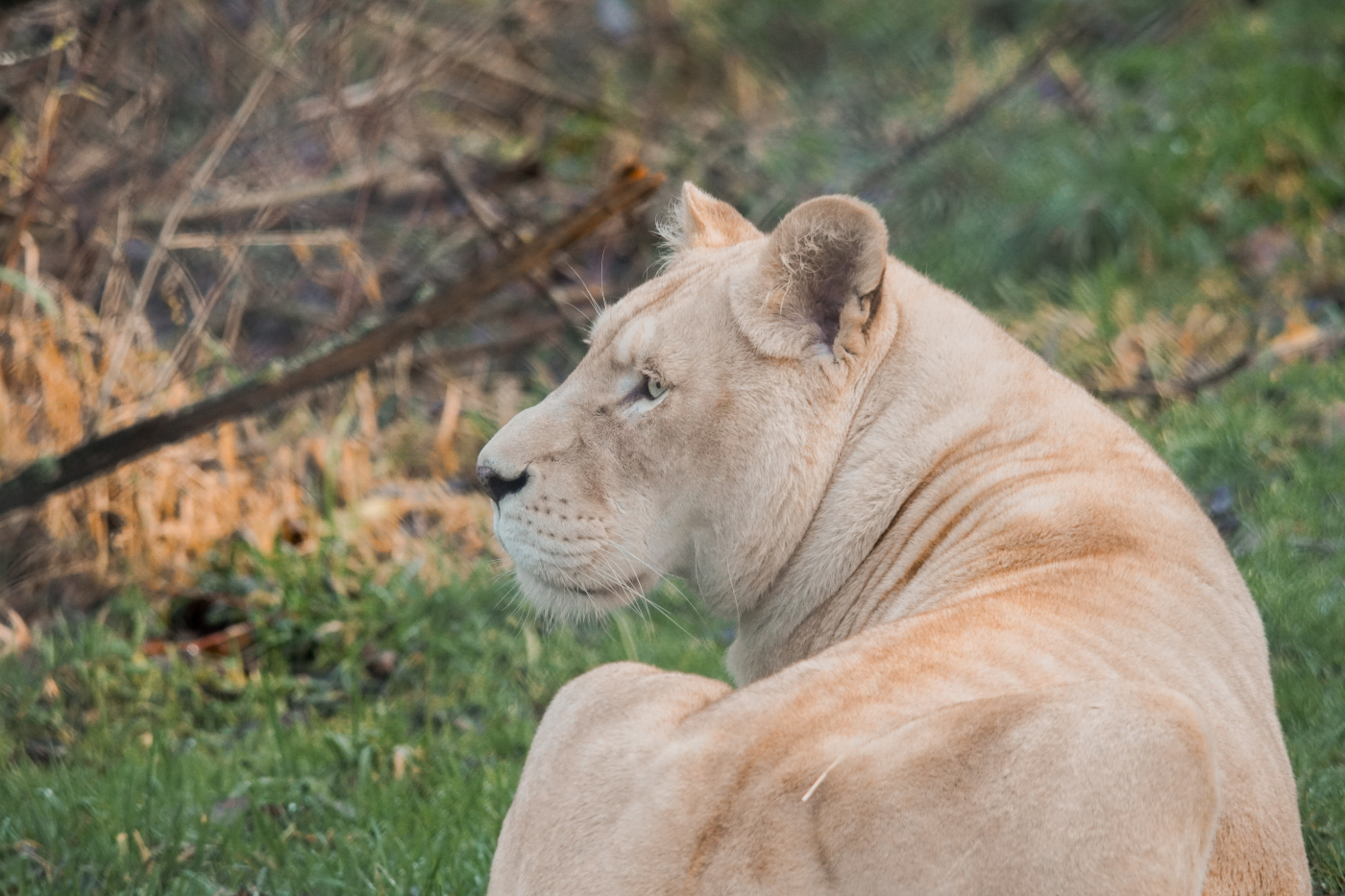Common name: Lion
Scientific name: Panthera leo
Conservation Status: Vulnerable
At the zoo: Boomer (male, 18y), Kasal (male, 10y), Prim (female, 10y), and Tess (female, 10y) - Kasal does not have a mane because he is neutered. We have 2 prides right now - Kasal & Prim are together, and Boomer & Tess are together; you can find them in the western enclosures of our Cat Complex. You may notice a new lion! Her name is Pumpkin (3y) and she is a rescue like Boomer. GVZ is recognized as a leader in exotic animal health and welfare, and we are often called upon to help in situations where exotic animals are kept in inappropriate situations which was the case with Pumpkin. She was in poor condition when she was rescued and dedicated GVZ staff nursed her back to health. We are so proud of the progress she has made. Boomer and Pumpkin are great examples of why exotic animals do not make good pets.
Habitat:
African lions are found in sub-Saharan Africa, typically in the savanna and grassland biomes.
Diet:
In the wild: large and small ungulates, small mammals, birds, carrion.
Median Life Expectancy:
17 years
Biology:
Lions are the only members of the cat family to live in a social group known as a pride. The females hunt for food and the males protect their territory and babies from other males. Lions are the only cats that show gender dimorphism which means the male and female of the species look different. Lions typically sleep during the day, become active in late afternoon, and often hunt at night. Lions are vulnerable due to poaching and habitat loss and exist primarily in protected areas.
Fun Fact:
Did you know that lions can sleep up to 21 hours a day!?





